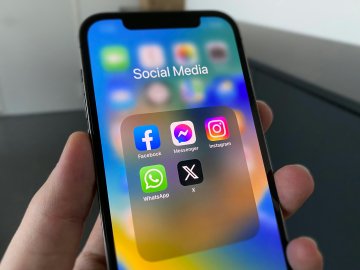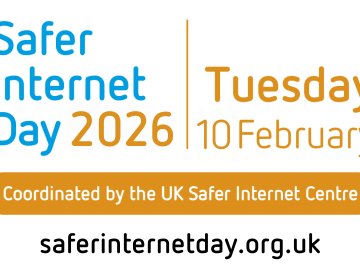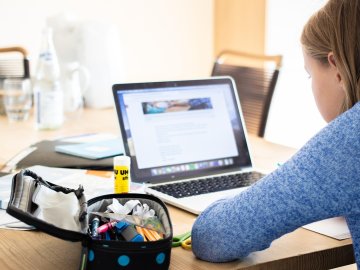The replacement of SWGfL’s current Digital Literacy Curriculum resource with its comprehensive and innovative programme ProjectEVOLVE, due for release in mid-Autumn 2019.
It’s complicated
We find ourselves in a world where information drives society and for many media businesses, it’s a valuable commodity. In the centuries before us it was coal; iron; cotton; oil: now its data.
Navigating this complex landscape is difficult at best. Many of us find our way through this tangle of information through trial and error; forging our own unique path and learning as we go. However, as we have seen only too often, some of those “errors” have the potential to lead to harm.
It’s no accident, then, that Media Literacy; Digital Literacy and Citizenship are a key element of the UK government’s “Online Harms” white paper. Amongst a raft of other regulatory measures, Media Literacy education threads itself through the whole strategy.
But what does good digital literacy education look like? How do we craft something that not only is relevant but achieves positive and realistic outcomes?
Hands across the Atlantic
Nearly 8 years ago, SWGfL teamed up with Common Sense Media from the US to create the comprehensive Digital Literacy resource. Hugely popular with schools and educators, the resource used, mapped and adapted the Common Sense Media framework to create a detailed, relevant and exciting digital literacy curriculum for children from 5 years old to 16.
Reviewed and updated annually, it was the “go to” resource for many educators for their lesson plans; activities and professional development. Through the whole scheme, SWGfL mapped additional localised resources from Europe, Australasia and the UK ensuring relevance and building flexibility.
But the landscape has changed.
A week’s a long time in politics
This may be true for politics (especially right now) but eight years represents an epoch in the world of technology use.
Eight years ago there was no Snapchat; no TikTok; no 5G; no Cambridge Analytica and whilst the landscape doesn’t hinge on one development, the interplay of all of these technologies changed attitudes, behaviours and priorities.
Who’d have thought we would be worrying about fake news across the whole media landscape or who we could trust eight years ago? Ransomware hadn’t raised its ugly head and the prospect of “deep fakes” hadn’t emerged. Gaming had not yet experienced the online ascendancy of GTA V or Call of Duty and “Blue Whale” was still six years away.
Gradually, Digital Literacy became more difficult to update and less relevant with each passing month. Common Sense Media restructured its framework and resources became harder to map.
Time for a rethink.
Education for a Connected World: a primer for life online
SWGfL had worked with the UKCIS Education group to create the framework “Education for a Connected World” released by UKCIS and UK government in February 2018. This was a radical refocus on what our expectations and the outcomes should be for children and young people when educating and supporting their lives online.
The framework is challenging, relevant and detailed with over 330 statements covering an age range from 3 years old right up to 18.
Eight strands cover all aspects of online life:
- Self Image and Identity: shaping online identities and how media impacts on gender and stereotypes
- Managing Online Relationships: relationships and behaviours that may lead to harm and how positive online interaction can empower and amplify voice.
- Online Reputation: strategies to manage personal digital content effectively and capitalise on technology’s capacity to create effective positive profiles
- Online Bullying: strategies for effective reporting and intervention and how bullying and other aggressive behaviour relates to legislation
- Managing Online Information: offers strategies for effective searching, critical evaluation and ethical publishing
- Health, Wellbeing and Lifestyle: understanding negative behaviours and issues amplified and sustained by online technologies and the strategies for dealing with them
- Privacy and Security: behavioural and technical strategies to limit impact on privacy and protect data and systems against compromise.
- Copyright and Ownership: protecting personal content and crediting the rights of others as well as addressing potential consequences of illegal access, download and distribution.
Whilst the framework is clear and builds on prior learning, professionals are left to their own devices in interpreting statements and planning lessons, activities and outcomes. And there’s so much of it!
Having been at the heart of the framework since its inception, we at SWGfL thought we’d change that.
Enter ProjectEVOLVE
In a nutshell?
ProjectEVOLVE resources each of the 330 statements from “Education for a Connected World” with perspectives; research; activities; outcomes; supporting resources and professional development materials.
This vast library of content is managed by an innovative new engine, designed by the brilliant SWGfL Webteam, that not only makes navigating the content intuitive but allows users to personalise the content they collate.
Just need a research summary on a topic? What about a lesson plan with stimulus questions? How about activities for pupils and students? An information sheet for parents; no problem! Professional development materials for your staff at the press of a button or screen tap. It has been designed with customisation and flexibility at its heart.
The vibrant new content has been written by a writing team of SWGfL experts. It’s up to date; relevant and engaging and moves online life education into the third decade of the 21st century. No more online safety posters #nomoreposters ! Yay!
Oh and did I say? It’s free to use!
When can I get my hands on ProjectEVOLVE? I need this in my life… like… now!
It’s been a Herculean task to create all of this new content and we want to get this exciting project out to users as soon as possible. So we have a plan. (A little like building a plane as it’s flying)
We will release the first instance of ProjectEVOLVE by mid October 2019 with four of the eight strands resourced, just to get you started. These will be:
- Health, Wellbeing and Lifestyle
- Managing Online Relationships
- Privacy and Security
- Self Image and Identity
The other four strands will follow in the New Year 2020 along with additional functionality that includes student assessment and pathway support.
You can find ProjectEVOLVE online from around mid-October.
We will continue to run Digital Literacy until September 2020 when it will be decommissioned and archived. Any resources from this site that you feel you would like to keep, then download and save them before then.






